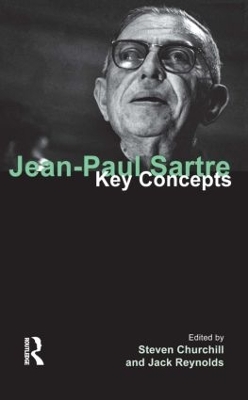Key Concepts
2 total works
Most readers of Sartre focus only on the works written at the peak of his influence as a public intellectual in the 1940s, notably "Being and Nothingness". "Jean-Paul Sartre: Key Concepts" aims to reassess Sartre and to introduce readers to the full breadth of his philosophy. Bringing together leading international scholars, the book examines concepts from across Sartre's career, from his initial views on the "inner life" of conscious experience, to his later conceptions of hope as the binding agent for a common humanity. The book will be invaluable to readers looking for a comprehensive assessment of Sartre's thinking - from his early influences to the development of his key concepts, to his legacy.
Having initially not had the attention of Sartre or Heidegger, Merleau-Ponty's work is arguably now more widely influential than either of his two contemporaries. "Merleau-Ponty: Key Concepts" presents an accessible guide to the core ideas which structure Merleau-Ponty's thinking as well as to his influences and the value of his ideas to a wide range of disciplines. The first section of the book presents the context of Merleau-Ponty's thinking, the major debates of his time, particularly existentialism, phenomenology, the history of philosophy and the philosophy of history and society. The second section outlines his major contributions and conceptual innovations. The final section focuses upon how his work has been taken up in other fields besides philosophy, notably in sociology, cognitive science, health studies, feminism and race theory.

